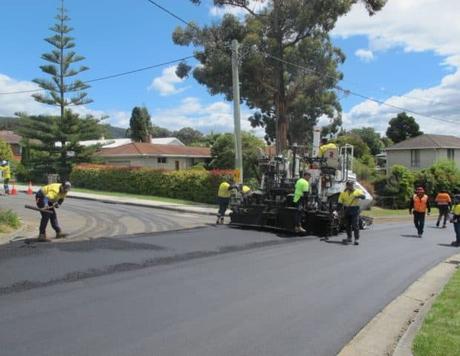Coastal town Snug under Kingborough municipality, Tasmania became the first town in Australia to witness the intelligent use of plastic. It is for the first time in Tasmania that Kingborough Council built a road along Charlton Street in Snug using soft plastics and glass. The local government recycled the single-use plastics and landfill-bound wastes to construct the road.
According to Kingborough Council, the 1,640-foot (5 meters) road alongside Charlton Street consumed 173,600(approx.) plastic bags & packaging and 82,500 glass-made bottle equivalents rerouted from the landfill. Apart from plastics and glass, toner from approx 5,900 used printer cartridges and over 33 tonnes of recycled asphalt recycled into 330 tonnes of asphalt to construct the road.

The Kingborough Council in partnership with Downer, Close the Loop and RED Group, which are road construction, resource recovery, and recycling companies, made it possible to set a new benchmark in sustainability.
Cr Dean Winter, the Mayor of Kingborough, said it is the thrilling experience for the council to take leadership in diverting products from landfill and utilize them sustainably and innovatively. The staff of the council will continue to demonstrate leadership and creativity to reduce environmental footprint.
Councilor Richard Atkinson strongly supports recycling and reuse solutions. He said it is encouraging that Kingborough Council being committed to waste minimization develops partnerships with progressive organizations to find environmentally responsible solutions for wastes.
As told to ABC News, Australia an equivalent of 2 years of single use-plastic got used in this 500 meters long road. If the endeavor becomes successful, they will continue the same process for rest of the roads. Although the product is expensive, this plastic road will last 15% longer than a regular asphalt road and that in the long run making it would be cheaper.
As said by Stuart Billing, Downer’s General Manager Pavements, this milestone event shows the importance of the partnerships of leaders with thoughts to generate economic, social and environmental value for products which otherwise would end up in landfills, stockpiled or pollutant.
The Kingborough Council and their partners proved that thought and tenacity could make a positive difference and in terms of sustainability, it’s a new benchmark for finding ways to recycle and repurpose wastes into new kind of use. According to Billing, it’s not pushing waste but pulling products.
Reconophalt – this cost competitive road product makes the road last longer due to enhanced strength and resistance and can handle heavy vehicle traffic better.
Downer and Close the Loop together innovatively tailor wastes like soft plastics to apply and make it suitable for construction of the road.
General Manager of Close the Loop Australia, Nerida Mortlock mentioned their close partnership with Downer and collaborative partnership with RED Group that helped in design, development, and manufacture of sustainable products using troublesome waste streams. They are happy to see a road built with the soft plastic first time in Tasmania.
However, the plastic road concept is not new. In a fishing town in southernmost state Kerala in India, an innovative project got started by the fishermen by collecting ocean plastic for recycling and thus cleaning the ocean. There was more plastic than fish in their fishing net.
Since August last the fishermen collected 65 metric tons of plastic waste. They even took the initiative and set up the recycling center first time in their region with the support of several Govt. agencies to process the plastics and sold them to the organizations making roads to strengthen the asphalt.
Above are the examples to raise awareness about the crisis of global plastic waste. As a responsible reader, what you can do is take the pledge and reduce your consumption of single-use plastics as much as possible. Remember, the cumulative result of individual efforts can be miraculous.

